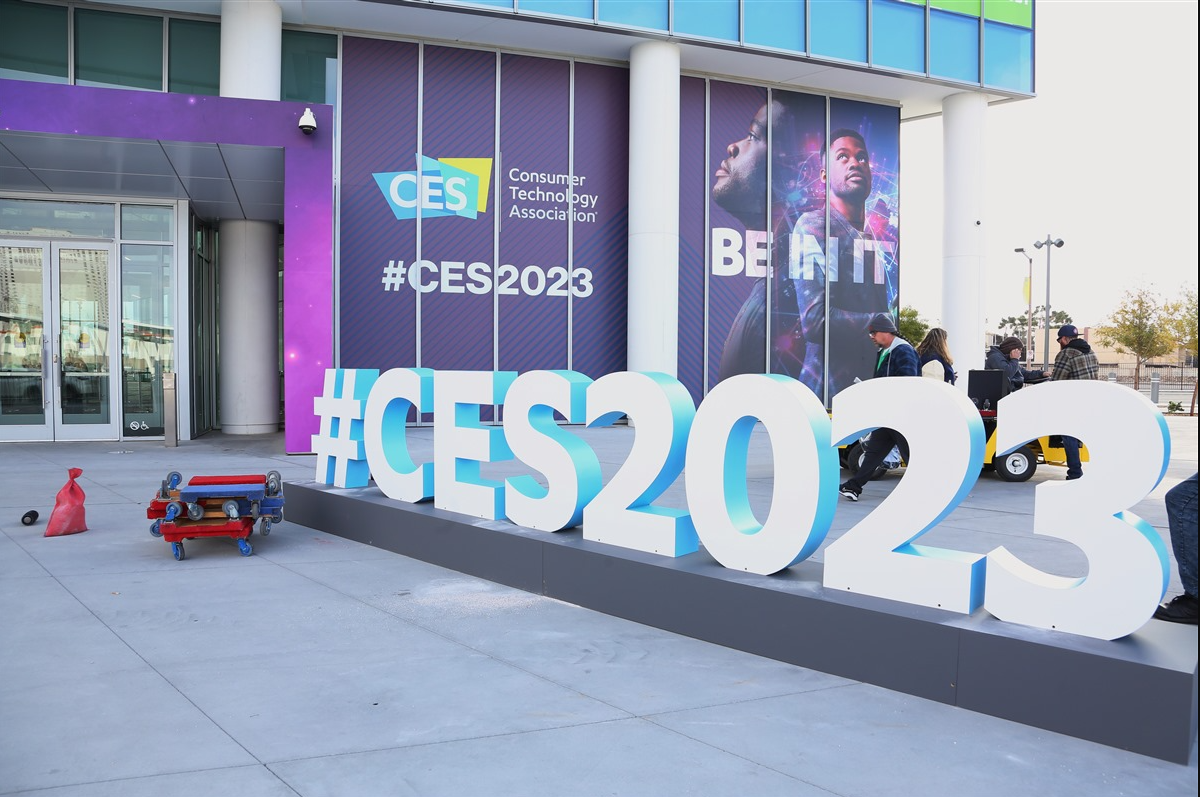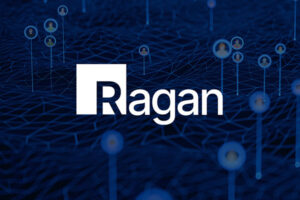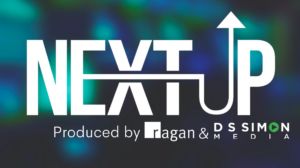The most innovative workplace tech unveiled at CES2023
Here are the announcements that stood out — including the dystopian ones.

Held each year in Las Vegas, the Consumer Electronics Show (CES) describes itself as “the most influential tech event in the world.” With an estimated 100,000 attending last week’s event, it may be the largest, too.
While tech brands treat the annual trade show as an opportunity to show off their latest innovative gadgets and products, this year’s show also saw an increased focus on technology that will shape the future of work — and how that technology impacts employees.
Here are the announcements that stood out.
New tech marketed to remote and hybrid workers
Some of the announcements for new PC peripherals directly seized on the remote and hybrid work trend, emphasizing monitors with higher resolutions for an optimal remote work environment and laptops marketed to freelancers. Among these products, HP went further by emphasizing the collaboration capabilities of its new HP Dragonfly G4, HP EliteBook 1040 G10, and HP Elite x360 1040 G10, which include multi-camera support so workers can simultaneously show themselves alongside a display or whiteboard, documents and more.
HP also introduced the Poly Voyager Free 60 Series line of wireless earbuds, which it claims was designed with hybrid workers in mind. Beyond adaptive noise canceling and background noise blocking, HP also says that the buds can pair with the Poly Lens mobile app to let IT managers remotely manage employee devices.
Of course, with each innovation in technology comes a potential for the tech to be misused or abused, and these buds are no exception. “Remotely managing devices” traditionally refers to taking complete control of the device, but it’s unclear from HP’s initial release if this means that the buds can allow IT to record what employees hear and say through their wireless earbuds, or take them over entirelly.
In an era where employee surveillance is more common than ever, it’s on communicators to consider the ethical implications of this tech should your organization consider adopting it. And in some instances, that will require asking additional questions of manufacturers before agreeing to use hardware at an enterprise level.
Those earbuds were not the most dystopian piece of workforce tech at CES, however. Instead, that superlative goes to Acer’s bike desk:
Acer says that the gadget, which uses kinetic energy generated by pedaling to power the user’s devices, encourages a healthy lifestyle while doubling a sustainable energy solution. The desk shifts into a working mode and a sports mode depending on whether the user is working out, while a companion app also tracks user data and progress.
Looking at the eKinekt bike desk, it’s hard to not imagine thousands of these machines in a row in some nondescript, dimly lit factory, illuminated only by the glow of a laptop screen and accompanied by the eerily synchronous sounds of fervent pedaling. In any case, the businesses consider that consider buying these for certain workers will be making a bold statement about their commitment to work culture. While promoting health and wellness is wonderful, this tech walks a fine line by tethering biometrics to work productivity and negating employees with disabilities.
Meeting, onboarding and training in the metaverse
When Facebook rebranded as Meta and began to tease its forays into the metaverse, communicators wondered whether this new dimension for virtual engagement would have enterprise-level applications beyond marketing. The potential for internal meetings in the metaverse seemed fuzzy at best difficult to scale and still a ways off.
This year, the vision of a collaborative office in the metaverse seems closer to a reality, with Dell edging forward as a leader in metaverse prototypes. At this year’s show, Dell showed off Concept Nix, which impressed CNET reporter Dan Ackerman.
At a pre-CES preview, I was able to participate in a faux meeting by creating a 3D avatar for others to see, and also by sitting in front of an autostereoscopic display (allowing you to see in 3D without special glasses) that gave me a 3D view of a project. After that, I donned a VR headset to feel like I (or my avatar) was actually in that shared space and writing on a whiteboard with my VR controller. And after that, I was able to use a slate-style tablet to interact with the real-world version of that same whiteboard, but without wearing a headset.
During the show, Accenture also explained how it used the metaverse to onboard 150,000 new team members virtually during the pandemic. New hires were given an XR headset and introduced to the metaverse within a virtual “One Accenture Park.” Beyond there, they used the metaverse for team collaboration, meetings, town halls and more. Accenture also increased its learning and development opportunities, along with its commitment to accessibility, though this program.
At #ces2023, #Accenture's perspectives on #Metaverse, including how they aim to use it for #training and #education, #accessibility, and the onboarding of 180k new #employees.#ces23 #ai #ar #vr #innovation #tech #technews #immersive #immersiveexperience #immersivetechnology pic.twitter.com/xmH2b9wCFn
— AkshayaNFT (@akshayaNFT) January 6, 2023
Digital fluency can improve the employee experience
New products and software aside, several CES panelists explained how the tech was just a means to an end for helping employees regain some time and quality of life:
“The first phase was location independence, the next frontier is time independence.” @darrenmurph @gitlab #futureofwork #allremote #CES2023
— Savvy #GoogleCloudNext Peterson 🇺🇦🏳️⚧️🏳️🌈 (@SavIsSavvy) January 5, 2023
Christie Smith, talent & organization/ human potential lead at Accenture, and Meta Director of Future of Work Dr. Kelly Monahan, went further, explaining how digital fluency can close the gap between what workers expect from a job and what employers are offering:
CES 2023 went beyond products to demonstrate how the future of work will not be shaped by technology alone, but also how that technology is implemented as part of the employee experience. To that end, staying curious, as early adopters of new and emerging tech while remaining skeptical around any potential for abuse or misuse will ensure that your judgment as a communicator remains vital to your IT, HR marketing departments and more.
Justin Joffe is the editor-in-chief of Ragan Communications. Outside of Ragan he is also a media and culture writer, an avid music nerd, cinephile, and musician whose recorded output ranges from ambient and experimental to folk and rock’n’roll. Follow him on Twitter and LinkedIn.







